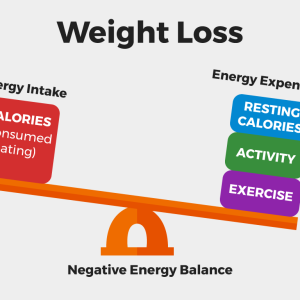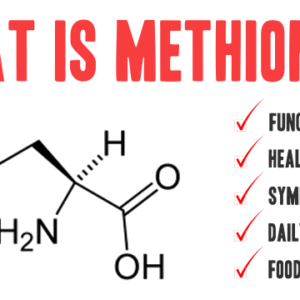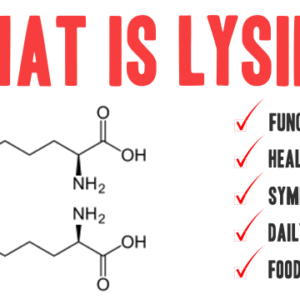If you’re trying to lose weight, it may feel like an uphill battle. You exercise regularly and eat more healthfully, but you’re still not seeing the scale moving parallel to your target.
One way to sort out this problem is having this TDEE calculator that will let you know about your everyday calories need and expenditure so you can determine your everyday meal as per your body’s requirement.
However, the reason for gaining weight is very important to find. Mostly it could be that your metabolism is working against you. Your body requires energy (calories) to function properly and that means burning calories so your body can run all its systems.
A sluggish metabolism can make losing weight more difficult than it needs to be.
Let’s find out what things can put your metabolism under laziness!
1. Being a couch potato
One of the easiest ways to slow your metabolism is by being a couch potato.
Couch potato syndrome, or “CPS,” is when you’re sedentary for most of the day.
It can include being glued to the television or computer screen for hours on end and eating unhealthy snacks. CPS can also be caused by depression or loneliness — both of which are associated with decreased physical activity levels.
A person who has developed CPS may have trouble sleeping at night (called “sleep apnea”), suffer from high blood pressure or cholesterol levels, and have a higher risk for heart disease than those with active lifestyles.
2. Eating too few calories
You need a certain number of calories every day to keep your metabolism running. If you don’t get enough, your body will slow down in an attempt to conserve energy.
On the other hand, if you eat too many calories or do not burn off what you eat with physical activity, the excess calories will be stored as fat and contribute to weight gain—and that can slow down your metabolism over time.
So how many calories does your body need?
It depends on factors such as age and sex (for example, men generally require more than women). Your doctor or dietitian can help determine just how much fuel is necessary for proper functioning of all systems in your body.
3. Skimping on protein
Protein is important for weight loss and maintenance because it slows down digestion compared with other macronutrients (carbohydrates and fats).
When you eat carbohydrates, they break down into glucose almost immediately in your bloodstream; this causes your blood sugar levels to rise quickly.
However, one downside of this process is that it can slow down athletic performance because higher levels of insulin mean lower levels of glycogen (stored carbohydrate) available for energy use during exercise training sessions; this means less energy available for training efforts!
4. Eating too little fiber
Fiber helps you feel full and satisfied, which may help prevent overeating.
Fiber also helps control blood sugar, reducing the risk of diabetes. It also promotes healthy bowel movements by adding bulk to your stool, which improves regularity.
The best sources of fiber include fruits, vegetables and whole grains like whole-wheat breads and cereals; beans; nuts; seeds; and dried peas or beans.
5. Overdoing it on the booze
No matter how you feel about your liver, it’s important to respect its job. If you drink too much alcohol, you’re actually interfering with the liver’s ability to process fat.
Alcohol can also have a diuretic effect, causing you to lose water and electrolytes (such as potassium and sodium).
This is bad because when you’re drinking too much alcohol:
- Your metabolism slows down because your body thinks it needs fewer calories than usual
- Your insulin levels drop, which can cause low blood sugar (hypoglycemia)
- You may experience dizziness or lightheadedness
6. Eating too many refined carbs
Refined carbs can cause blood sugar to spike and then crash, which leads to a hormonal response that tells your body it’s hungry again soon after eating. This is why when you eat refined carbohydrates you often feel hungry a few hours later despite having consumed enough calories for the day.
7. Not getting enough shut-eye
When you don’t get enough sleep, your body responds in the same way it does when you’re stressed or anxious. Your metabolism slows down, making it harder for you to lose weight and keep it off. How much sleep is “enough?” Here are some guidelines from the National Sleep Foundation:
- Infants: 14-16 hours each day (including naps)
- Toddlers 1-2 years old: 12-14 hours each day (including naps)
- Preschoolers 3-5 years old: 11-13 hours each day (including naps)
- School age children 6-12 years old: 10-11 hours each day (including naps)
- Teenagers 13 – 18 years old: 8 – 9 hours per night
8. Lack of motivation!
You’ve probably already heard that a healthy lifestyle includes regular exercise and plenty of fresh fruits and vegetables in your diet. But if you’re following this advice but still not seeing results? Look into whether your lack of motivation could be related to other factors affecting your body—like poor sleep habits or stressors in life that make it hard for you to get out there each day!
Conclusion
There are steps you can take to boost your metabolism. Make an effort to keep moving. Strength training builds muscle, which in turn helps to speed up your metabolism. Do at least 30 minutes of cardiovascular exercise 5 times a week. Eat smaller meals more often throughout the day and drink water instead of soda or juice.
A slow metabolism might be frustrating, but it doesn’t have to be permanent. Lifestyle changes can help you control your weight and keep those extra pounds from packing on with age.
Source:
- https://unsplash.com/photos/fnztlIb52gU?utm_source=unsplash&utm_medium=referral&utm_content=creditShareLink
- https://www.researchgate.net/publication/51882213_Objective_Measurement_of_Physical_Activity_and_Sedentary_Behavior_Among_US_Adults_Aged_60_Years_or_Older
- https://www.ndtv.com/health/are-you-an-active-couch-potato-here-s-what-you-should-do-about-it-2383551
- https://www.sleepfoundation.org/how-sleep-works/how-much-sleep-do-we-really-need#:~:text=National%20Sleep%20Foundation%20guidelines1,to%208%20hours%20per%20night.
- https://pubmed.ncbi.nlm.nih.gov/9416027/












